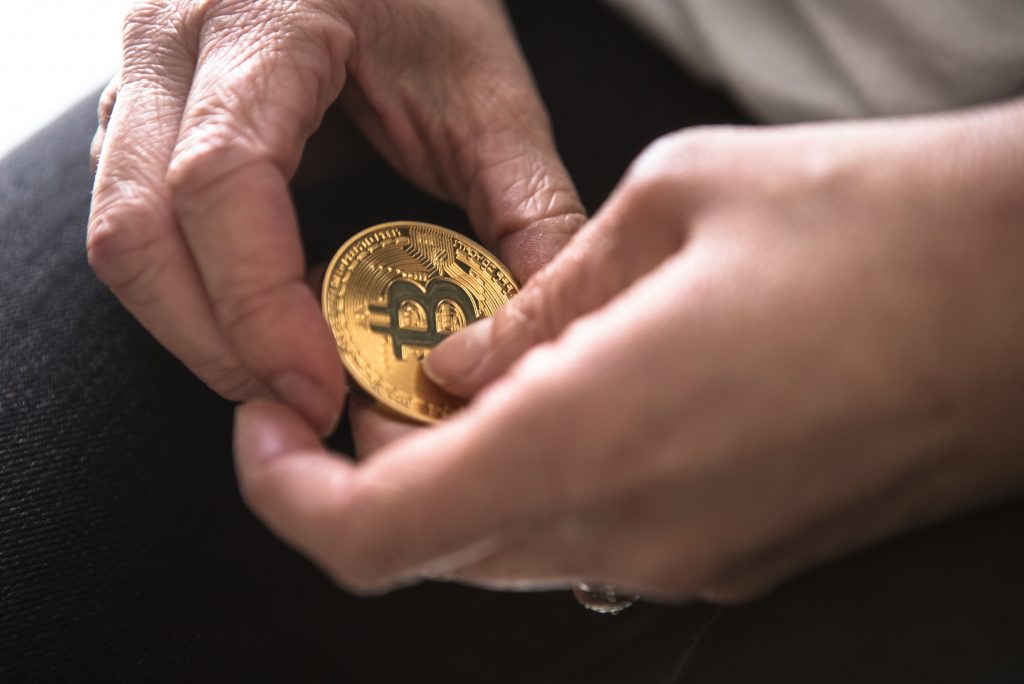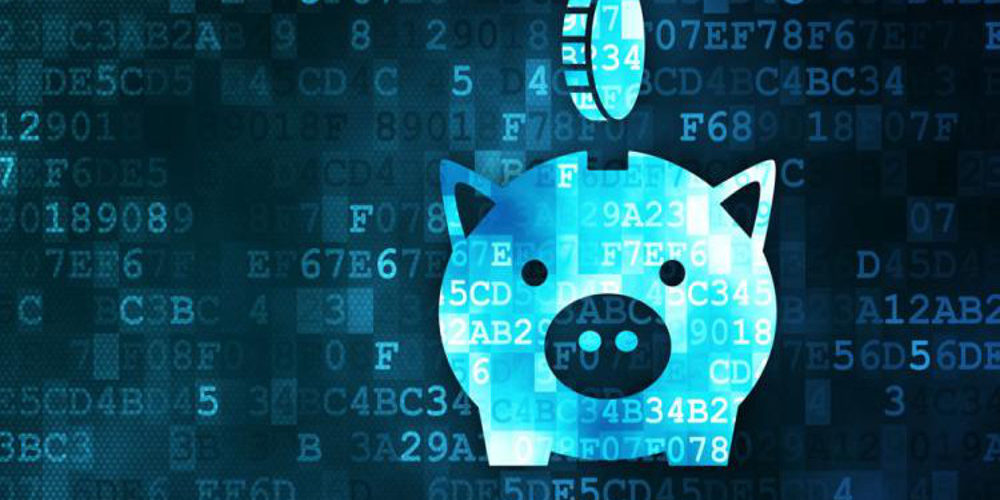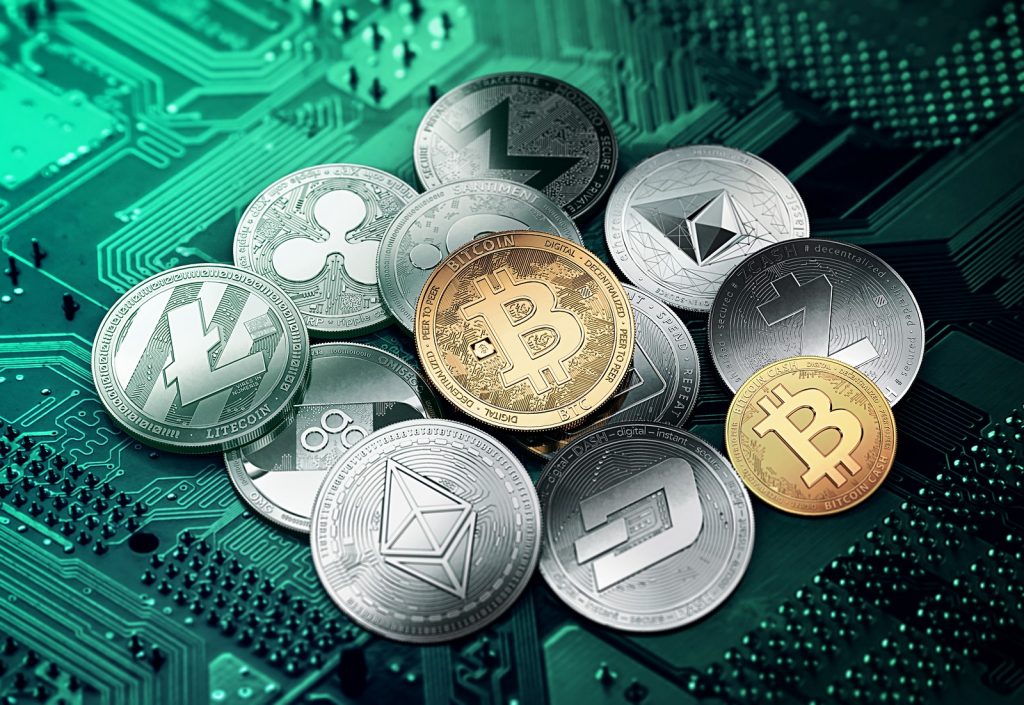How to avoid being scammed when investing in cryptos
By Randell Tiongson on July 13th, 2018
 In one of my posts in my Inquirer column, I answered some of the common questions on bitcoin in particular and cryptocurrencies in general. That emanated from one single question I received from a Facebook follower: “Should I invest in bitcoin?” Read post HERE
In one of my posts in my Inquirer column, I answered some of the common questions on bitcoin in particular and cryptocurrencies in general. That emanated from one single question I received from a Facebook follower: “Should I invest in bitcoin?” Read post HERE
Cryptocurrencies such as bitcoin are – unlike fiat currencies – digital currencies built on a decentralized ledger called blockchain. Although some countries allow cryptocurrencies as payment for, say, taxes, I should again have to reiterate that cryptocurrencies are, unlike fiat currencies, not regulated by a central authority such as governments’ central banks.
Because of the meteoric rise of bitcoin prices (and may I add, intermittent dive), the brave and bold are lured to try their luck in cryptos. Unfortunately, also lurking in the market are bad actors such as scammers and imposters ready to pounce on inexperienced investors.
Thus, if you are bent on investing in cryptocurrencies, it is important that you take your security into your own hands.
How then can you avoid being scammed?
If someone tells you that they can invest your bitcoin for you, say NO!
If you are interested to invest in cryptocurrencies, do so yourself. Do not add another layer of risk by getting someone to handle the investing for you. You should be ready to do the heavy lifting at the start: By studying the technology behind cryptocurrencies, risks involved, pitfalls, and mechanics that range from setting up and securing your digital wallet to online trading.
Don’t want to learn? Prices of cryptocurrencies are highly volatile. If you do not have the will to study what you are getting into, then better bring your money to traditional havens where you have a deeper knowledge of, such as real estate or mutual funds.
Always remember this: Never invest in something you do not understand!
If someone promises a hefty profit, BEWARE!
Today’s scam techniques have become more sophisticated as these combine the multi-level marketing scheme with the sexiness of bitcoin (or gold, or whatever form of asset is the “in thing” these days).
A recent example is the case of the Filipino couple who syphoned off P900 million from those who invested in their “bitcoin investment” company after being promised up to 30 percent cashback in 16 days.
That promise ensnared a lot of clients.
Fact check: The company was later found to be registered as a computer shop, and therefore not authorized to engage in trading. The couple employed a referral system – specifically, the pyramiding scheme – in their scam.[1]
Note that in most countries, bitcoin per se is not a scam. It is the method employed by fraudsters (such as when a “business” earns money through referral links and not through legitimate operations or products) that gives bitcoin a bad rap among the uninitiated.
Do not base decisions to buy/sell coins or tokens mainly on social media tips or just because there are sudden price hikes.
This year, the US Securities and Exchange Commission and US Commodity Futures Trading Commission have advised customers not to purchase virtual currencies, digital coins, or tokens based on social media tips or sudden price hikes.
The noise from social media is not an indication of the soundness of an investment. Neither is a sudden price hike an indication of a bullish streak. As shown by bitcoin’s pricing history, crypto prices are volatile.
Learn how to protect yourself from becoming a phishing victim.
Although the cryptocurrency market is still nascent, there are today a number of registered, responsible and compliant businesses that offer cryptocurrency-related services such as exchanges, wallets, and new coins or tokens through initial coin offerings (ICOs) and token sale.
That said, because bitcoin (or more accurately, blockchain) is the latest tech darling, online scammers are not far behind. These can be tech-savvy ones who use social media to direct victims to fake websites. Phishing involves getting a user to enter personal information via this fake website. Here, phishing scams trick you into giving out personal information (such as your digital wallet’s private key).
Want to sift the best ICOs (i.e., the ones with long term value) from the substandard ones? Do your homework. Do it the old-fashion way: RESEARCH.
Do not base your decisions purely on what social media says. Instead, do a background check on the ICO or token crowdsale. Review and analyze the offerors’ whitepapers and business models. Check how they are rated by listing sites. Check their github (Github.com), if public, for their level of engagement in the developer community. Investigate the expertise of the executive teams.
This list of suggestions is not all-encompassing as there are more best practices to follow once you have started creating your digital wallet (if you don’t know what this term is, it just means you still have a lot to learn about crypto investing). It goes without saying that since cryptocurrencies are traded online, it does help if the interested investor is at least a technophile.
Shout-out to Traxion.Tech CEO Ann Cuisia for some of the input here on cryptocurrencies. Her team is leading a project that aims to transition people, business, and governments to a crypto-ready society via an open source inter-Blockchain ledger platform using Hyperledger Fabric.
[1] http://cnnphilippines.com/news/2018/04/10/bitcoin-scam-pnp.html
Understanding the future of money
By Randell Tiongson on June 14th, 2018
What is the future of financial services? Are we really heading towards a cashless society or is it all hype?
Understanding technology like blockchain can change the future is important for proper financial planning. However, understanding it and its many applications such as cryptocurrencies will require due diligence and enough education. If you are thinking about investing in these trend, we highly recommend that you get proper education about it first. As we always say: “never invest in something you do not understand.”
It is our vision that Overseas Filipino become empowered and we believe that practical education is critical to attain such vision. In this regard, we are organizing a eye-opening seminar called “The Future of Money: Understanding Blockchain and Cryptocurrencies” on July 5, 2018 in Abu Dhabi and July 6, 2018 in Dubai.
*Please note that we are not endorsing cryptocurrencies, our intention is to educate.
Joining me in this event is Ms. Anna Cuisia, the CEO of a pioneering financial technology companies like Traxion Tech.
Who is Anna Cuisia? With 20+ years of information technology experience, Anna Cuisia has led several women startup founders. Prior to serial entrepreneurship, she has advanced in the corporate scene of banking and finance and have spent good number of years in payments and fundraising. She has been a pioneer in the Philippines for helping non profit organization achieve its digital transformation and online giving facilities. She is passionate about social impact and is now leading the whole TraXion direction on blockchain for the common good.
She has strong experience in Business Process Optimization, IT Consulting, Sales and Project Management for various industries including Banking, Retail, Real Estate and even Non-Profit Organizations.

For details and registration, please click HERE or send an email to [email protected]
Tips When Investing In ICOs and Token Generation Sale
By Randell Tiongson on April 26th, 2018
As many cryptocurrency enthusiasts know, bitcoin started at less than $1 in 2009. By 2012, it was a little over $6. Between 10 to 12 April 2013, it dropped 83% to $45. By early January 2014, it exceeded $880. At the start of 2017, it stood at about $985. It grew to $17,500 in December 2017. Today, it is hovering under $10,000.

Despite the stomach-wrenching rise and fall of prices, many remain attracted to cryptocurrencies, bitcoin being only one of the 1,500-plus digital currencies and assets in circulation. I am using bitcoin as an example here because it is one of the most popular digital coins and has the highest market capitalization of its kind at around $155 billion.
If the world will eventually turn cashless and transition to a crypto-ready economy, should we start investing in cryptocurrencies now, despite price volatilities? If Yes, how do we pick the potential winners?
Crypto What?
Let me backtrack a bit by explaining cryptocurrencies in contrast to the money we keep in our pockets. Cryptocurrencies, because they are virtual, only exist in digital form. There are no physical banknotes or coins, unlike our traditional money.
We also know that traditional money is issued by a central bank, the one body that has the authority to create the currency or remove it from circulation. On the other hand, most cryptocurrencies similar to bitcoin are not controlled by any central body, but the technology behind—called blockchain—allows secure transacting among parties, where the network of peers (computers) are the ones that record and validate every transaction in a public ledger. These transactions are cryptographically secured. Bitcoin is thus considered the first “decentralized” cryptocurrency.
The blockchain technology is partly the basis for how cryptocurrencies are classified: There are the altcoins, which could be either those using bitcoin-derived blockchain such as litecoin, or those using native blockchain such as ethereum and ripple; and then there are the tokens. Tokens, unlike altcoins, reside on top of another blockchain.
The Rise of Tokens
Although classified in many reports as cryptocurrencies, some tokens are not currencies by definition because they do not function as stores of value nor mediums of exchange. Those that are not purely cryptocurrencies may instead be classified as security tokens.
The third type of tokens is used as a payment method on a specific platform or a means to access the features of a network/service (much like how arcade tokens work). These are called utility tokens.
Today, we find a slew of tokens and coins being introduced in the market via initial coin offerings (ICOs) or crowdsale events. Unfortunately, some ICOs can be exit scams or will never make some traction after their crowdsale, leaving investors in a daze, at the very least.
Reason People Put Their Money On Utility Tokens
The “pump-and-dump” investors aside, the serious utility token investors put their money on issuer-companies with the best potential to scale due to what Skillshare founder Michael Karnjanaprakorn calls the “token network effects”*. It goes like this:” As the network grows, the token adds value to the platform and accelerates network effects.” Thus, the value of the token increases as the utility of the project/network increases.
Finding those gems from among the token issuers requires, like any other investment, some research. Before joining ICOs and crowdsale, there are a few things to keep in mind:
Think About Your Investment Objective: Think about why you want to invest in cryptocurrencies, what your timeframe is, and if you and your pockets can handle the price swings.
Do Your Due Diligence. With so many shiny coins and tokens being offered, how does one evaluate them? According to Ann Cuisia-Lindayag, CEO of Traxion.Tech, there are seven proofs to look for in tokens. I have reclassified these into three:
- Mechanics – what are the systems in place that validate the identity of crypto token buyers? How strict is its whitelisting process? Does the company aim to comply with the regulations in its location? Does it specify its governance framework? How does it secure its network?
- Token Metrics – Does the white paper indicate the purpose or utility of the token? What will be the pricing, soft and hard caps, supply, token sale allocation, lockup periods? Is the whitepaper clear on what the company will do with the unsold tokens? Token metrics relevant as they can influence the rise in your token’s value after the sale.
- Milestones – Clearly, issuers that already have some of their infrastructure in place are way ahead of the ICOs that are yet to start working on their proof of concept. Ideally, whitepapers should show the company’s roadmap, which must include timeframes and completed milestones.
Check Who Runs the Team and Its Network. Cuisia also identified the competence of the team—or its proof of capability—as an important factor to assess, and I cannot stress this enough myself. The whitepaper should be able to tell you if the executive team members have the track records, and domain expertise in the industry and technologies of their product. Likewise, a check on partners and clients can give you an idea on how much traction the company has made.
Know the Difference between IPOs and ICOs, crowdsale versus crowdfunding. Token crowdsale and ICOs are not a sale of shares in a company, but in its coins or tokens, which entitles holders to join the issuer’s project or system. This being the case, do manage your expectations.
Know Your Risk Tolerance: Can you stomach potential price volatilities? That is, can you still sleep soundly if prices drop in the double-digits? Investing in coins and tokens can bring good returns, Yes. However, because the world of cryptocurrencies is new, it is not for the faint-hearted. Investing in crypto can be categorized as highly speculative.
Know How to Secure Your Tokens:. The blockchain in itself is generally secure. Like any other forms of investments, there are risks of fraud in cryptocurrencies outside of the blockchain. Scams can be in the form of cell phone identity theft, and fake digital wallets, for example. Know that scammers too have become tech savvy.
Go By the Age-old Rule: The time-worn advice commonly attributed to writer Miguel Cervantes still applies to this day: Do not put all your eggs in one basket. Hedge if you must.
Here’s a cardinal investing rule that I want to reiterate: “Never invest in something you do not understand.”
Learn more about investing at the largest and most empowering investment conference of the year: #iCON2018
For details and registration, visit www.bit.ly/ICON_2018
 In one of my posts in my Inquirer column, I answered some of the common questions on bitcoin in particular and cryptocurrencies in general. That emanated from one single question I received from a Facebook follower: “Should I invest in bitcoin?” Read post HERE
In one of my posts in my Inquirer column, I answered some of the common questions on bitcoin in particular and cryptocurrencies in general. That emanated from one single question I received from a Facebook follower: “Should I invest in bitcoin?” Read post HERE



